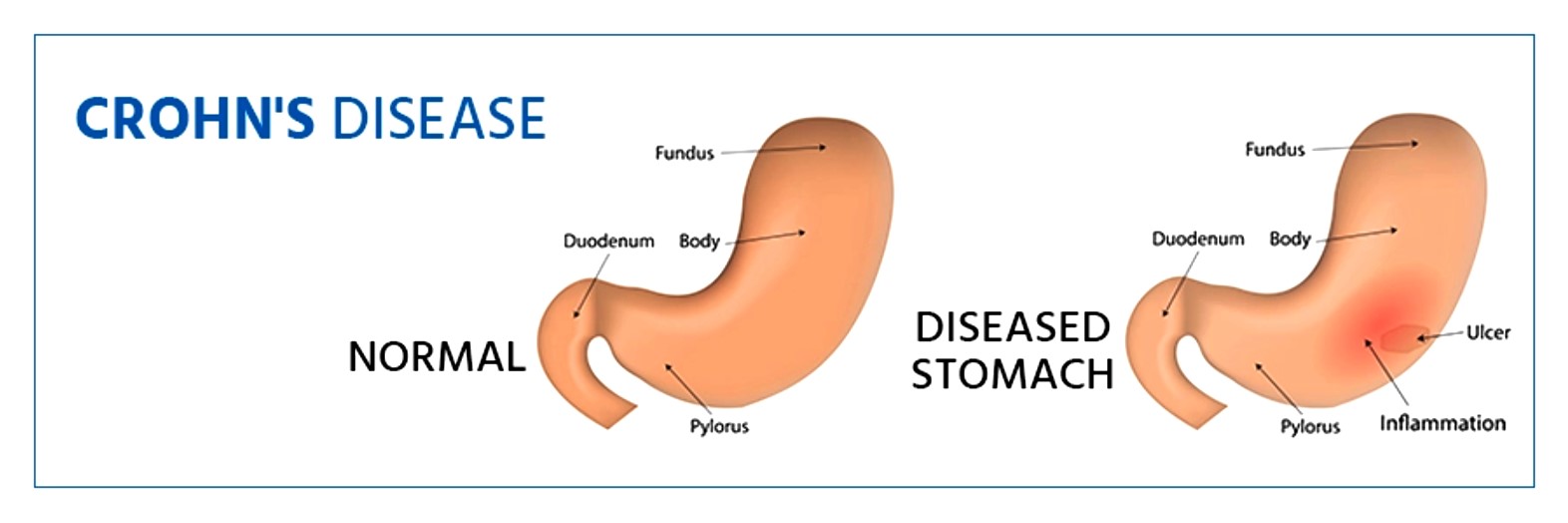Crohn’s Disease
Crohn’s Disease is a type of inflammatory bowel disease (IBD), chronic inflammation of the Gastrointestinal tract which extends from the stomach to the anus. The terminal ileum is the most frequent site.
Crohn’s disease is an autoimmune inflammatory condition which means the immune system mistakenly attacks the body’s own cells, thinking they are harmful when they are not.
Causes:-
- Immunity factors
- Environmental factors- Stress, smoking, hormonal contraceptives.
- Genetics
- Micro-organisms
Signs and Symptoms
- Abdominal pain
- Diarrhea- bloody or non-bloody
- Bloating, flatulence
- Fever
- Cachexia
- Anaemia
- Fatigue
- Arthritis
- Erythema nodosum
- Pyoderma gangrenosum
- Arthritis
- Skin rashes
- Ankylosing Spondylosis
- Osteoporosis
- Clubbing
Diagnosis
- CBC
- ESR
- CRP
- Ferritin
- Folates
- Vitamin B12
- ASCA
- ANCA
- Colonoscopy with biopsy
- Capsule Endoscopy
- Barium Follow Through
- Barium Enema
Management:-
It involves treating acute symptoms of the disease.
- maintaining remission
- Lifestyle modifications
- Maintain hydration.
- Avoid smoking.
- High-fibre diet.
- Antibiotics
- Anti-inflammatory drugs
- Corticosteroids
- Iron supplements
- Surgery- is advisable if disease does not respond to drugs, lifestyle modification or in case of any complications or emergency.
Complications
- Bowel Obstruction
- Fistulae
- Abscesses
- Small intestinal cancer
- Malnutrition
- Perforation
- Hemorrhage
Author :- Dr Sanjiv Haribhakti
M.Ch. GI Surgeon of Western India
Kaizen Hospital


